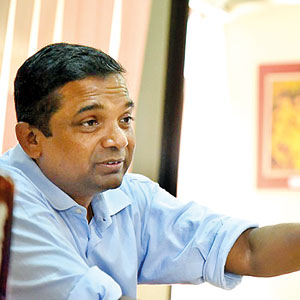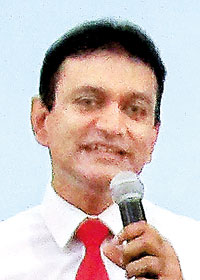News
Reach out to grieving families to let them know they’re not alone
There is no chance to hold them close or say a tearful or prayerful goodbye as they depart on their final journey. Many are not even able to be by the bedside of a loved one breathing his/her last laboured breath.
There is also no time for mourning. A look at the beloved face from far away and hurried rites and rituals before he/she is consigned to the flames ensconced in polythene wrapping and placed in a coffin or taken for burial miles away in Oddamavadi, Batticaloa.

Dr. Nishara Fernando
The COVID-19 victims usually die alone in a clinical setting, even though the exhausted healthcare staff try their level best to save them and the grief-stricken and distraught families weep alone and feel that they are asaranai.
Tragically, this is the new normal that we are compelled to face, says Sociologist Dr. Nishara Fernando of the Department of Sociology, University of Colombo, when asked by the Sunday Times.
“This is where relatives and friends of the bereaved family need to step in and provide strong support. They may not be able to be ‘there’ physically if the immediate family members of the deceased are in isolation but they can provide moral support on the phone or using technology to talk to them face-to-face,” he pointed out.
The reality, according to him, is that while in urbanised settings there are nuclear families, in the rural areas, there are lots of relatives living as extended families which may be an advantage in times of loss.
Another avenue of solace is resorting to prayer in whatever religion the bereaved family follows, says Dr. Fernando, talking of the COVID waves being similar but at the same time drastically different to the tsunami which engulfed the coastal areas of Sri Lanka in 2004, leaving people numb with shock and sorrow.
“The tsunami was a one-off thing but the COVID waves are affecting us over and over again, hitting closer and closer home causing much shock,” he says, strongly urging that “we should provide all the support we can to those facing such a traumatic situation”.
Referring in general to how people can cope in these troubled and challenging times, Dr. Fernando says that social capital needs to be made use of to the maximum. Those in underprivileged areas are currently totally dependent on their social support system.
“So, they need to be encouraged to trust their neighbours and friends because these are the people they can depend on. An advantage is that Sri Lankans try to maintain ‘reciprocal’ relationships. We try to develop these relationships with immediate and extended family, friends, community….and this is good, as these days we cannot depend on formal organizations,” he said, adding that it is all about the “available” social capital.
| How to cope with bereavement It is a hard time for people, particularly those who have to face a family bereavement from COVID-19, says the President of the Sri Lanka College of Psychiatrists, Dr. Gihan Abeywardena. He says that some hospitals do allow close family members to come hold the hand of a critically-ill COVID-19 patient, if they are willing to don masks, gloves and gowns which can easily be bought from a pharmacy. They also need to be able to overcome the fear of catching COVID-19.  Dr. Gihan Abeywardena Others are allowed to either talk or gaze at a loved one through a two-way communication glass, but of course, when a patient is close to death, he/she would not be able to respond, he says, adding however that the relatives can murmur prayers or blessings, like they would do at their bedside under normal circumstances. “Sometimes, this helps give closure to the traumatized family members and also to the departing father or mother,” he said, explaining that on the suggestion of microbiologists some hospitals have come up with a system of demarcating a cubicle to which a patient is brought either walking or in a wheelchair, so that he/she can talk to family through a polythene screen. This, however, is not possible if the patient is oxygen dependent. Dr. Abeywardena dwells on how a family can face the post-bereavement period. If they are in isolation due to exposure to the virus, they need to keep in touch with family and friends through technology. Once they come out of isolation, they can perform the rites and rituals, according to their religious beliefs, to bestow merit not only on the deceased but also to get peace and solace, he adds. | |

